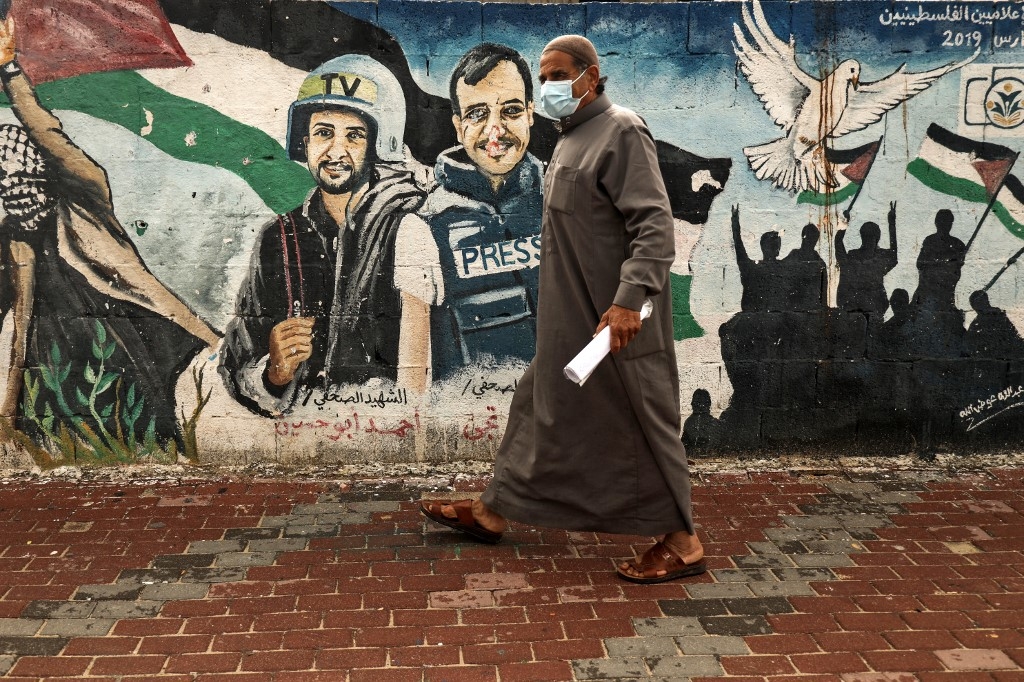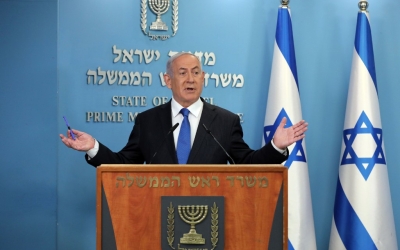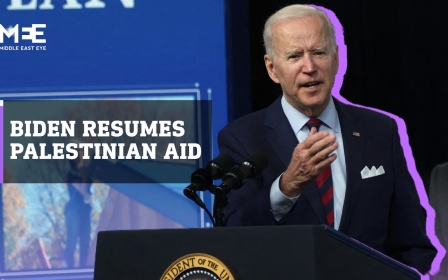Palestine accuses UK of giving 'carte blanche to Israel' in opposing ICC probe

The Palestinian Authority's diplomatic mission in London accused British Prime Minister Boris Johnson of giving "carte blanche to Israel" after he issued a statement opposing the International Criminal Court's (ICC) decision to probe Israel for possible war crimes.
Johnson, in a letter to Conservative Friends of Israel, said that the UK does not accept ICC jurisdiction over individuals of Israeli citizenship, "given that Israel is not a party to the Statute of Rome and Palestine is not a sovereign state", while adding that the decision "gives the impression of being a prejudicial attack" against Israel.
New MEE newsletter: Jerusalem Dispatch
Sign up to get the latest insights and analysis on Israel-Palestine, alongside Turkey Unpacked and other MEE newsletters
The PA's mission in London said the letter marked "a low point in UK-Palestine relations and undermines the UK’s credibility on the international stage".
"The letter is a contradiction of international law. It is a contradiction of British policy. It subverts the rules-based global order. And it sets back efforts to secure a lasting and just peace in Palestine," the diplomatic mission said.
"It is clear that the UK now believes Israel is above the law. There is no other interpretation of a statement that gives carte blanche to Israel to continue its illegal settlement project in occupied territory, and signals to Israel that no matter its actions vis-à-vis the Palestinian people in occupied territory, it will not be held to account," it continued.
'The legitimacy of the court'
The ICC opens investigations in places where the domestic authorities are unable or unwilling to look into allegations of abuse. The court investigates the actions of individuals, not countries.
The ICC's chief prosecutor, Fatou Bensouda, announced last month that the court will proceed with a probe into possible abuses committed in the Palestinian Territories since 2014, following a lengthy review of the court's jurisdictional abilities.
The investigation will cover alleged war crimes both by Israeli forces and Hamas during the conflict in Gaza and Israel's settlement activity in the West Bank, including East Jerusalem.
'Johnson's position rules out any legal avenue... what does the British government expect [Palestinians] to do?'
- PA's mission in London
"If Mr Johnson disputes this, he disputes the legitimacy of the Court," the Palestinian mission in London said.
Israel and the United States - neither of which are signatories to the court - have both challenged the ICC's jurisdiction to investigate their citizens.
Last week, Israel announced that it will formally notify the ICC that it will not cooperate with the Hague-based tribunal's probe, saying the Israeli government is "law-abiding" and "capable of carrying out its own investigation" into alleged abuses.
Palestine, while not an internationally recognised state, is a signatory to the ICC Rome Statute. In its statement on Wednesday, the Palestinian mission noted that the UK "raised no objection at the time" of its joining the court.
"The UK has an opportunity to be an important and positive mediator in efforts to secure a lasting peace in line with international law. It has a historic responsibility for the Palestinian people, having been instrumental in creating the problem in the first place," the mission said, referring to the colonial British Mandate that preceded the creation of Israel in 1948.
"If Israel is not held responsible for its actions, it has no incentive to comply with international law. If 'friends and allies' are exempt from international law, there is no foundation for the rules-based global order," the Palestinian mission continued.
"Mr Johnson's position rules out any legal avenue to seek redress and accountability for crimes perpetrated against our people, leaving Palestinians to ask: what does the British government expect them to do?"
Middle East Eye delivers independent and unrivalled coverage and analysis of the Middle East, North Africa and beyond. To learn more about republishing this content and the associated fees, please fill out this form. More about MEE can be found here.





